The speciality and local products market has become small stores’ secret weapon when it comes to offering lines that the large stores can’t. C-Store looks at how retailers are managing this burgeoning category
Like energy drinks and chilled produce before it, the speciality and local products market has evolved from niche to necessary. Shoppers don’t just want to see products from speciality and local producers in their local convenience stores - they expect to see them.
In fact, according to HIM Shopwaves data, just under 50% of shoppers now rate locally- sourced products as “important”, while sales of speciality foods as a whole are showing strong growth and in 2013 were up 35% year on year through fine food distributor Cotswold Fayre alone.
CJ Lang and Son marketing manager Gerry Welsh says locally-sourced and speciality foods are most positively perceived by women and ABC1 (upper to lower middle class) consumers. However, thanks to the now infamous ‘horsegate’ scandal, people from all walks of life are taking a much greater interest in the provenance of their food and drink - and now that the UK is officially out of the economic gloom, a growing number are choosing to balance out their baskets by mixing competitively-priced branded goods with select speciality items.
“Most shoppers also view local sourcing as supporting the local economy and perceive these products as being of better quality,” Welsh adds.
Merchandising
Clever display ideas that won’t break the bank
Products from small and speciality producers can be a great way to create arresting displays and spice up the shopping experience, as they lend themselves perfectly to adding some in-store theatre.
Shelf-edge chalk board panels are a popular way of signposting speciality products and can be a smart but economical way of grabbing attention and imparting information about the supplier, such as how close it is, or its back story. Packs of 20 A8 double-sided chalkboard panels are available from a variety of stockists for about £11. White liquid chalk markers cost about £2.
Wicker baskets, wooden boxes and barrels can also be used to accentuate products and prompt impulse sales.
Use straw or a similar material to line them and set off the products inside for an authentic rustic feel.
The Southern Co-operative’s local sourcing manager Kate Hibbert agrees. Turnover and associated profit from its Local Flavours range has grown by 120% in the past four years and the company plans to boost turnover of Local Flavour products by a further 50% in the next three years.
“Demand has increased as shoppers care more about provenance as well as food security,” Kate explains. “People feel safer when they ‘know’ their farmer or producer,” she adds.
As shopper interest in the category has grown, so too has the range available. Gone are the days when local and speciality goods were limited to ambient jams, preserves and biscuits. These days retailers at the top of their game are taking a cross-category approach with a particular emphasis on chilled goods including meats, cheeses and smoked fish. These retailers are using products from local and speciality producers to spice up their shelves and create a striking point of difference from their competitors, and particularly the supermarket convenience stores.
Take Richard Williams, owner of Convenience Retail Award winner Williams of Somerton in Somerset, for example. Richard’s 9,500sq ft store is mainly supplied by Nisa, but stocks more than 1,000 lines from local and speciality producers which, he says, sets it apart from the competition.
The store boasts an abundance of chilled local and speciality meats, cheeses and ready meals, as well as its own brand Somerton Amber Ale.
The Southern Co-op’s Local Flavours range, meanwhile, now includes products from across the chilled, ambient, frozen and BWS categories.
“As we’ve understood how important this is to our business, we’ve increased space in store and now have dedicated bays for each category,” Kate adds. “The increased space means we can increase the offer, which in turn increases demand.”
Londis retailer Roli Ranger also takes a cross-category approach to speciality and local products at his Ascot store in Berkshire. While subject to strict ‘loyalty’ criteria with Londis, Roli also works directly with about 15 different small suppliers and buys goods through speciality product wholesalers such as Cotswold Fayre, Hider Foods Imports and Mercia Fine Foods, which is centrally billed through Londis.
“Speciality products are becoming more and more important and I would say that they are now a fixed part of every good convenience offer,” he says.
Tastings
In-store sampling gets sales moving
Speciality and local products also lend themselves well to in-store sampling events, which can generate valuable interest and theatre.
In Somerton, sales at Richard Williams’ store are set alight by a programme of weekly in-store tastings, which are run by the suppliers themselves.
Its destination wine range supplied by Berry Bros & Rudd is supported by tasting notes to guide shoppers in their choices, as well as regular wine tasting events which tempt shoppers to be more adventurous in the wine they buy - and to trade up.
The Southern Co-op is a big fan of the sampling approach. As local sourcing manager Kate Hibbert explains: “In store tastings are most beneficial as nothing beats tasting the products!”
Roli has four main routes to sourcing new local and speciality producers. The first is via speciality product wholesalers such as the aforementioned Mercia Fine Foods and Cotswold Fayre, which provides independent retailers with a vast range of quality ambient food and drink products from many hundreds of specialist producers. In addition to hassle-free ordering and billing, Cotswold Fayre, in particular, also holds conferences involving specialist advisors to help retailers develop their offers in line with market trends.
Roli also enjoys taking a more direct approach to sourcing new speciality producers, often visiting other retail stores such as Whole Foods Market to examine their offers.
“If I like the look of a particular product I’ll buy it to sample myself and if I like the appearance, taste and ethos then I’ll think seriously about taking that producer on.
“The good thing about this way of sourcing a new supplier is that the very fact that the products are being sold elsewhere means I know it’s ready for market and is likely to sell well,” he says.
“Speciality suppliers also come into the store and approach me directly,” he adds.
“When this happens I always find that the best thing to do is ask them to hold a sampling day in the store. That way customers can see, taste and smell the products and, if they like them, they can buy them on the day. It’s a great way of gauging customer interest, and a spin-off benefit is that it also creates a bit of in-store theatre,” Roli adds.
Over in West Sussex, two-store Budgens retailer David Knight takes a similar approach to sourcing new suppliers.
About 10% of his range is now made up of ‘specialist’ products which appear across “pretty much every category”. In addition to the speciality products he buys through Musgrave, he now works with almost 60 individual specialist producers.
However, while the category definitely delivers a large helping of colour and life to David’s shelves, his approach to category and supplier management is black and white.
“As the specialist food and drink category has evolved and grown so, too, has the need for professionalism,” he says. “You can’t just do it ad hoc. You need to have one clear system in place that you use with all the suppliers. When we first started dabbling in the category years ago we had some suppliers that wanted paying weekly, some monthly, some in cash, some by bank transfer. It was a real challenge to manage. Now we just have one system where everyone gets paid electronically on the same day once a month,” he says.
“We also have a very professional system for taking on a new supplier. The first thing that we get them to do is to fill out a business terms and conditions form. It’s not a contract as such, but it explains key things such as when and how we pay, and we won’t budge on those. While you can have some really meaningful relationships with specialist producers and many things are more relaxed, there are some areas such as payment where you have to maintain strict control and professionalism, or it can get sticky.”
Continuity of supply is one of those ‘sticky’ areas, and a key element to pin down any new supplier on. As with any category, availability is key and customers will soon become frustrated when the destination products that they have come to buy are not in stock - regardless of the reason. While strong relationships can help keep supply niggles at bay, getting small and local suppliers to agree a ‘business terms’ form can also be handy here.
David also asks all new suppliers for their latest Environmental Health Officer report, meat audits, and proof of their Level 3 Award in Food Safety and Hygiene.
When it comes to ordering, a lot of retailers favour a paper-based system, which requires a physical check of the shelves to make a note of what’s selling and what isn’t, with orders then placed directly with suppliers over the phone. However some, such as Shemin’s, which supplies Roli with freshly-made curry sauces, come to the store themselves twice a week to check and replenish stock.
“Sure, it’s a slightly more time-consuming way of ordering, but you also build up good relationships with the suppliers and it can be a great deal of fun,” adds Roli.
Sam Long, from the community-owned Shop At Strood Green, near Dorking in Surrey, also gets a kick out of managing the store’s governing range of speciality products, which are supplemented by a weekly delivery of core groceries from P&H. “There is so much personality, both in the products and the producers themselves, and they bring customers in from miles around,” she says.
By their very nature local and speciality products do tend to command a price premium, and they can offer equally tasty margins. David looks to make 20-25%, but is reluctant to push any higher as he feels that doing so could “backfire”.
“Speciality products are all about margin enhancement,” he adds. “They can push your cash profits, drive footfall and increase customer retention. Once customers get ‘hooked’ on a particular speciality product they will keep on coming back, and I’m proud to say that I have some customers who will drive almost 10 miles from Brighton to my store just to buy certain speciality products.”
The premium price points that speciality products tend to command call for a professional and powerful approach to merchandising and marketing. After all, if shoppers are going to shell out more for a speciality product, they have to know why.
The Southern Co-op Local Flavours lines are generally merchandised in isolated bays with branded shelf-edge labelling. Each supplier also has a bespoke shelf barker featuring pictures of its suppliers. “This generates theatre and local distinctiveness around the brand,” adds Kate.
David used to merchandise all his specialist products together in a dedicated display, but about two years ago he changed this approach, and now places them within their respective categories, but supported by clear shelf-edge labelling.
Thanks to a new online facility through Musgrave, he can also design and print professional-looking shelf barkers which help to signpost speciality goods and set them apart from their branded counterparts.
“If the producer has a nice story to tell then we put that on the shelf barker and if not then we’ll put some statistics about the number of food miles the product has travelled,” he says.
Social media is another powerful medium to promote a specialist offering and one which Simply Fresh retailer Simon Biddle readily employs. Eat Goodness’ Wasabi Crackers and Go Go Coconut water are currently enjoying their time in the sun on the store’s popular Facebook page.
Promotions can also work as effective marketing tools and when David signs up a new supplier he always makes it clear that as part of the deal they will run two promotions with his stores a year. “We map out when they will be in advance so that there is plenty of time to plan.”
National and seasonal events such as last month’s Scottish Food and Drink Fortnight create a good marketing hook, as CJ Lang and Son recently discovered. Its six-week promotional campaign saw Scottish Spar stores decked out with a comprehensive POS kit including Scottish display materials for its promotional bays.
Last, but certainly not least, is word of mouth. With their standout packaging and arresting back-stories, speciality and local products provide a perfect talking point between customers and staff, be it on the shop floor or at the till point. So what better time to set those tongues wagging and tills ringing?
Sourcing
Where to find suppliers
Speciality wholesalers
Speciality product wholesalers such as Mercia Fine Foods, Cotswold Fayre and Hider Foods Imports can provide access to a vast range of quality food and drink products from hundreds of specialist producers, with hassle-free ordering, billing and deliveries.
Tried and tested
Check out what your competitors are selling. Specialist products already for sale in other stores are likely to sell well and the producers should be accustomed to retail demands.
Face to face
Don’t underestimate the power of word of mouth. Once you have established a reputation for selling local and speciality products you’ll be surprised how many suppliers contact you directly.
Trade shows and farmers’ markets
Trade shows such as the National Convenience Show and local farmers’ markets are a great way to meet new producers and sample their wares.





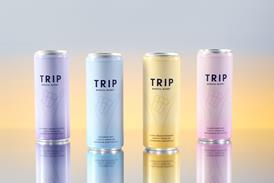
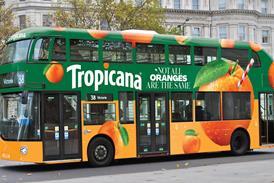








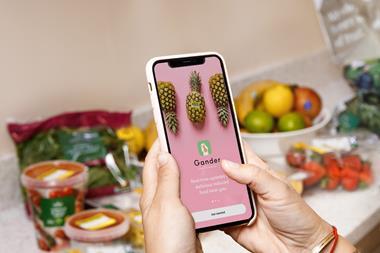

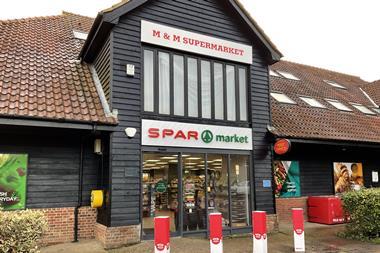

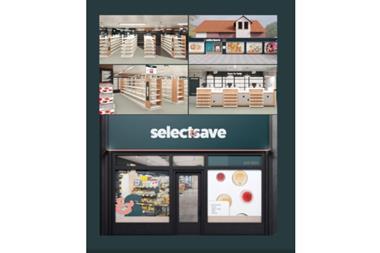
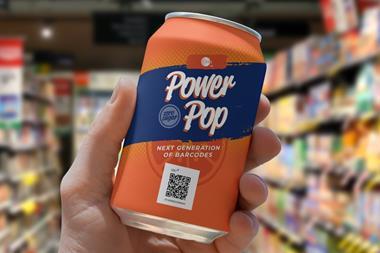
No comments yet